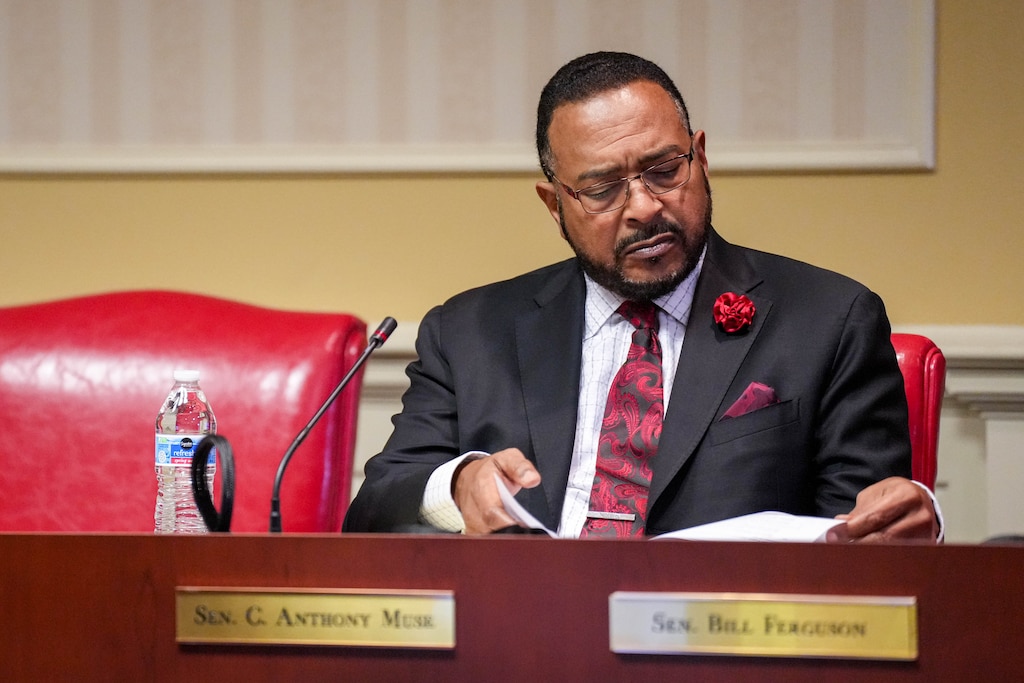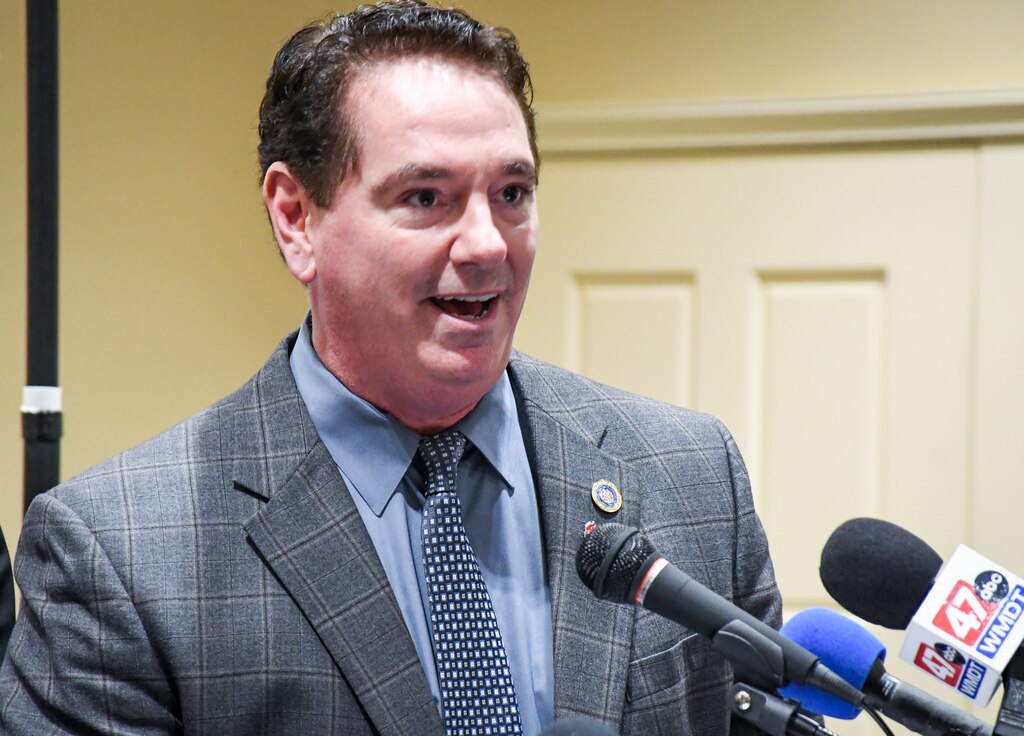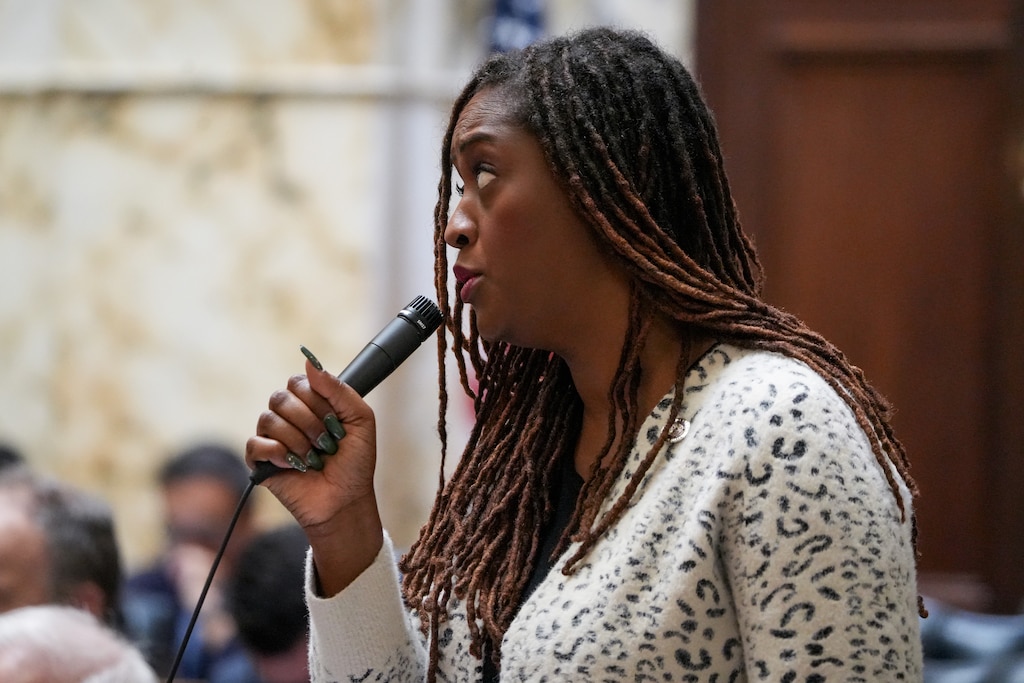The votes were cast, the session was adjourned and Del. Aletheia McCaskill still was absorbing what had happened: Maryland lawmakers approved creating a commission to study reparations for slavery.
The bill’s passage on Wednesday night represented the culmination of years of work from McCaskill and other lawmakers who have been pushing for the state to open a discussion about whether and how to atone for the state’s legacy of supporting the enslavement of Black people and systematically denying their rights for generations after slavery ended.
“Right now, I am full of a lot of emotions,” McCaskill said as her colleagues emptied out of the House of Delegates chamber. “It’s beyond a bill passing. It’s about a healing.”
Helping Maryland become the third state in the nation to study reparations represented fulfilling her parents’ encouragement that she dream big, McCaskill said. “I dreamt it to happen,” she said.
The Baltimore Banner thanks its sponsors. Become one.
But the bill’s path to passage was rocky, surviving attempts to weaken it and arguments from opponents that downplayed the effects of racism and slavery on Black Americans.
An hour of debate was at turns tense and emotional. The final vote was 101-36, and the “no” votes all came from Republicans, according to the unofficial tally.
The Senate already approved the bill, 32-13, and it will head to Gov. Wes Moore’s desk for his consideration.
The bill that passed is the version that began in the Senate sponsored by Sen. Anthony Muse, a Prince George’s County Democrat who partnered with McCaskill.
If the Democratic governor signs the bill into law, the state will set up a 23-member commission directed to “study and make recommendations relating to appropriate benefits to be offered to individuals impacted by historical inequality,” including slavery and post-slavery government policies through the Jim Crow era.
The Baltimore Banner thanks its sponsors. Become one.
While many view reparations as monetary payments, the bill directs the commission to consider a range of options that also includes official statements of apology and policy changes such as property tax rebates, tuition assistance and business incentives.
“Addressing these harms is not just about acknowledging history, but it is about creating a more equitable future,” Muse said when he presented the bill earlier in the session.

Some Republicans questioned the need for people today to address the sins of the past.
Del. Matt Morgan, chair of the conservative House Freedom Caucus, said lawmakers have done nothing to address rising energy prices or public safety — yet they were considering reparations.
“When political parties are out of ideas, they resort to distractions. They resort to demonizing, and this is the bill we have here,” he said.
The Baltimore Banner thanks its sponsors. Become one.
Morgan complained that none of the members of the commission are required to be Republican and he predicted the bill would lead to a policy that would “tax one race and give it to another race.”
“Let’s call this bill out (for) what it is: It’s a commission to set up a reparation tax,” he said. “It is the year 2025. Are you kidding me? All in the name of equity. Equity is a Marxist term.”

Del. Brian Chisholm, an Anne Arundel County Republican, prefaced his remarks by acknowledging that slavery was “horrible” and “evil.”
But embarking on a path toward reparations, he said, isn’t the solution.
“So many people in this room are successful, regardless of your race, creed or color. I’ve never been Black. I know I have no clue what it’s like. I know you went through some hell,” he said. “I don’t think this is going to fix it. I think it’s going to make it worse.”
The Baltimore Banner thanks its sponsors. Become one.
At one point, Republican Del. Lauren Arikan of Harford County tried to change up the bill to require a commission to study how to compensate people who suffered child sexual abuse while in state care, such as juvenile detention or foster care — another issue that lawmakers are wrangling with. She said lawmakers should focus on that group of people who were victimized by the state and are alive today.
Del. C.T. Wilson stood to oppose the amendment as someone with “the distinct displeasure of fitting into both of these groups” — a Black man who survived child abuse. He said the two issues should not be conflated.
“The legacy of slavery isn’t something that happened 200 years ago. It happened in the ‘50s. It happened in the ‘60s,” said Wilson, a Charles County Democrat.
Several Black lawmakers offered a passionate case for studying reparations.
Del. Jamila Woods said she traces her ancestry to people from Ghana who were enslaved and brought to the United States — including Harriet Tubman, the famed abolitionist and Underground Railroad conductor.
The Baltimore Banner thanks its sponsors. Become one.
Woods, a Prince George’s County Democrat, said in a fiery speech that her ancestors and the ancestors of others in the room suffered from “enslavement, racial discrimination, sexual violations, lynchings and more.”
“My family continues to be impacted today from the egregious actions of the past, the historical injustices that benefited some continue as some in this very room still enjoy — perhaps unintentionally — unearned, ongoing generational wealth and white privilege,” she said.
Del. Jazz Lewis, a Prince George’s Democrat, said the state will never fully erase the stain of slavery.
“But we can do, through this study, is we can shine a light on the dark corners of this history and give the specific descendants of that harm the dignity of being seen, acknowledged and repaired,” Lewis said.

For all the concern about taxpayers raised by opponents, Del. Stephanie Smith noted that those who have suffered from state-sanctioned discrimination were taxpayers, too.
The Baltimore Banner thanks its sponsors. Become one.
“I think we’ve forgotten that there were taxpayers in the late 1800s and early 1900s through the mid-20th century, who did not get the benefit of the taxes they paid,” the Baltimore Democrat said. “There were roads they paid for they could not drive down. There were schools they paid for they could not enter. There were colleges they paid for they could not gain admission to. And all the while, they paid taxes on wages that were unjust and unequal.”
The reparations commission, Smith said, is a way to start to acknowledge those people.
“They were taxpayers that never got what they invested in,” she said.




Comments
Welcome to The Banner's subscriber-only commenting community. Please review our community guidelines.